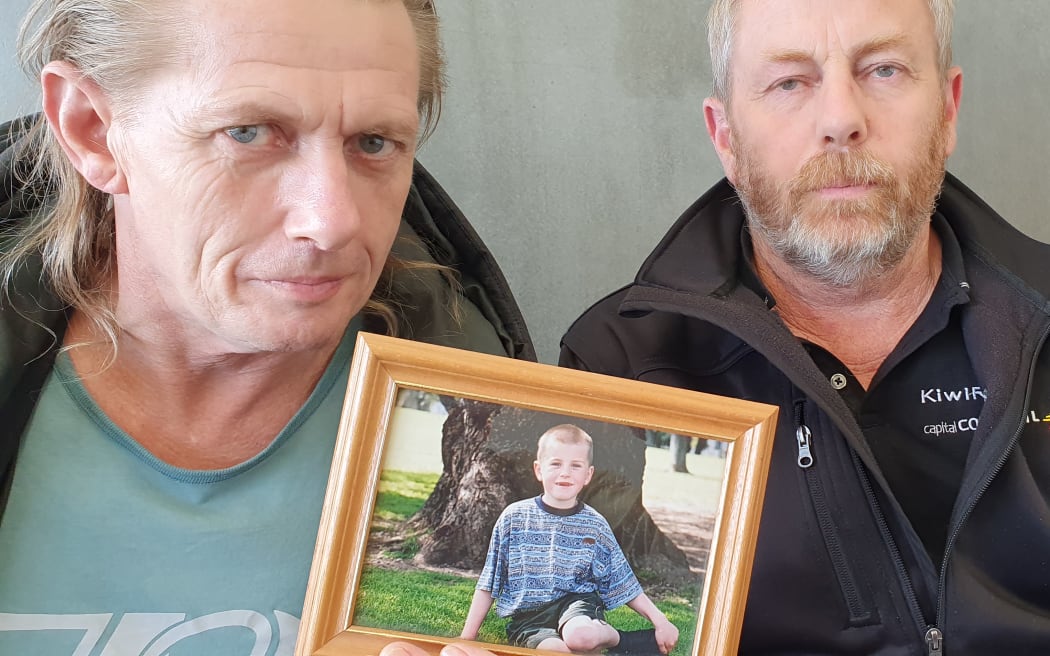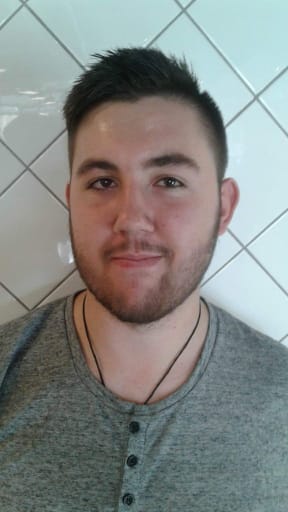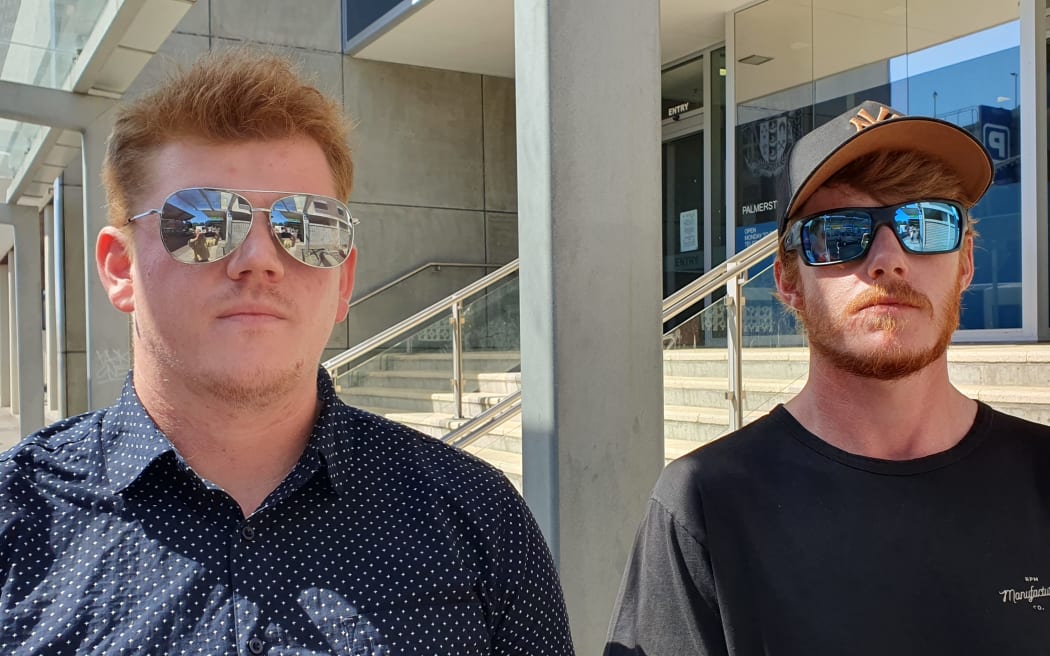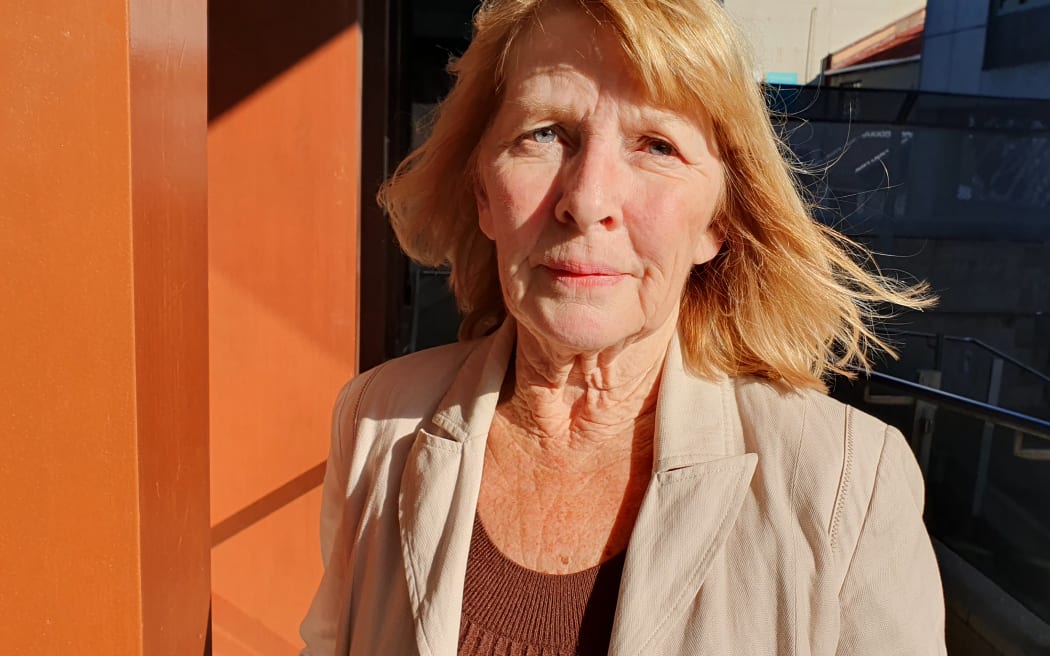
Mark Ginders, left, with a photo of his son Jake when he was younger, and Jake's uncle Wayne Ginders (right). Photo: RNZ / Phil Pennington
The mother of one of two temporary employees who died during a work commute has told an inquest he was "too scared to say no" to driving.
Palmerston North men Floyd Harris and Jake Ginders died in a road crash in January 2019.
An inquest in Palmerston North heard 21-year-old Floyd went to watch speedway most weekends and had a "heart of gold". His family added he was devoted to his three younger siblings.
He had only a learner driver's licence, but was driving Jake Ginders, also only on a learner's, when they spun out and hit a ute.
His mother, Sharon Harris, told the coroner her son had autism and could not stand up to his employer, AWF, about driving other workers almost 50km to work at Oringi near Dannevirke.

Floyd Harris' family say he ‘had a heart of gold’. Photo: Supplied
"I asked how are you getting there, and he said, 'Oh, I've been told I have to drive', and I wasn't comfortable with that," Harris said.
"Floyd had told me he was too scared to say no, and he felt pressure to comply or he would be given no further assignments and he would have no income," she said.
"If it wasn't for the instructions and pressure placed on Floyd to drive Jake, and previously others, these young men would still be alive... and we wouldn't have to be living this constant nightmare."
'Vulnerable people'
The coroner, Janet Anderson, is scrutinising the travel of temps who worked for AWF, which is part of the country's largest recruitment group, Accordant.
AWF told her it placed workers in up to 1000 sites per month, and any worker could turn down any job with no repercussions.
The family of 23-year-old Jake spoke of how, from age of nine, the quiet video-game fan helped look after his four younger siblings in Ashurst.
His father, Mark, said they had planned to start a painting business, at the time he died.
He spent a lot of time driving his children to their jobs and school, while holding down his own job, but on this occasion with the Oringi job was not there, the inquest heard.

Jake Ginders’ younger brothers Luther Ginders (left) and Dylan Ginders, outside the inquest in Palmerston North. Photo: RNZ/Phil Pennington
Uncle Wayne Ginders, a former transport manager, told the hearing if AWF had made just a few simple checks - on Floyd's licence, on the long commute distance, both of them "red flags" - the trip would not have been allowed.
"If it were a company vehicle, you would have had controls in place," Wayne said.
"Anything less is just poor management and disregard for life," he said.
"It's often the most vulnerable people in our society that find their way into employment with labour force agencies such as AWF and these casually employed people need to be looked after."
'Terrible oversight'
Two nights before the crash, an AWF team leader took Floyd to a BP to put petrol in his car.
The company said it sometimes paid for the travel time of its workers, as it had in this case.
AWF, in a 2021 letter to Jake's family, said its failure to ascertain Floyd's licence class was a "terrible oversight with tragic consequences".

Diane Chandler Photo: RNZ/Phil Pennington
Jake's aunt, Diane Chandler, told the coroner recruiters' only product was people, so they had no excuse for not knowing how to protect them.
"Jake was put into a situation by his employer AWF that took his life," Diane said.
"AWF operated a practice of facilitating travel using other employees to provide transportation to work sites, along with paying for travel time and providing drivers with petrol money for the journey," she said.
"This is not a one-off tragic oversight, but a common practice that put providing resources to contracted jobs above the care and wellbeing of employees."
The AWF senior manager who led its response to the crash, Donna Lynch, said AWF did not instruct the two men to commute together but did informally facilitate it.
"Field workers are responsible for getting themselves to work," Lynch said, but AWF sometimes helped connect workers with each other if they had no transport.
"We would not have facilitated this if we had known he had an L licence," she said.
As Floyd's actual work did not require driving, no one had checked his licence status, though it had been in company files since 2016.
It did still make such "informal" arrangements for one worker to drive another, but since the 2019 crash, it had brought in new checks on driver licences, Lynch said.
The Ginders family said AWF had appeared reluctant to take responsibility but the company told the inquest it had stepped up.


